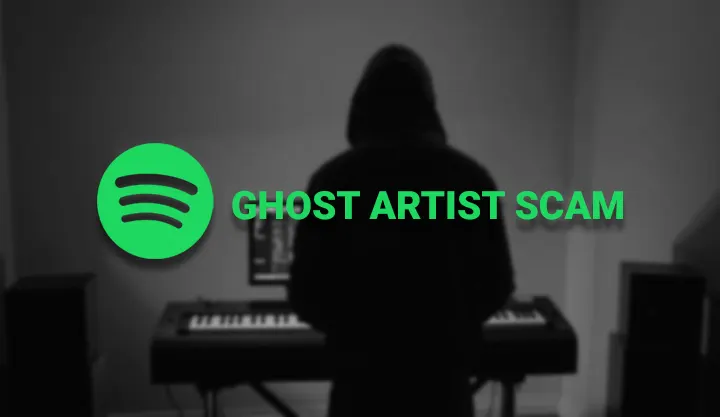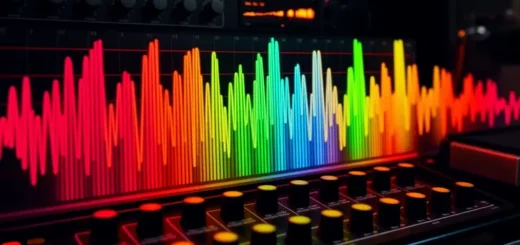Spotify’s Ghost Artist Scam

Spotify has faced persistent accusations of fraudulent practices related to the creation of “ghost artists” or fake profiles, allegedly with the aim of manipulating playlists and reducing royalty payments to legitimate artists, thereby increasing its own profits.
The alleged mechanism of the “ghost artist” or “phantom artist” fraud on Spotify primarily revolves around an internal program called “Perfect Fit Content” (PFC). Here’s how the mechanism is described:
Creation of Generic Music: It is alleged that Spotify commissions generic music tracks from a small group of composers. These composers are reportedly hired by external companies associated with Spotify to produce music specifically designed for moods or activities, such as concentration, sleep, or background listening. Testimonies from anonymous composers suggest these productions are “extremely simple, don’t take much time, and are cheap.”
Transfer of Rights for Fixed Payments: The agreement with these composers involves them ceding the rights to these songs in exchange for a fixed payment. This arrangement is crucial because it allows Spotify, or associated entities, to retain the rights and thus avoid paying the full royalties per stream that would normally go to legitimate artists.
Promotion in Curated Playlists: These songs are then actively promoted and included in Spotify’s own curated playlists as part of the PFC program. Former Spotify playlist curators have claimed they were pressured by the company to include these tracks in playlists.
Accumulation of Streams and Cost Reduction: The main objective is for these songs to accumulate millions of streams. By filling playlists with music from these “ghost artists” or “stock music” for which it pays low fixed fees, Spotify allegedly reduces the total amount of royalties it needs to distribute among legitimate artists. This directly translates into profits for the platform by minimizing its royalty costs. Companies identified as providers of PFC include Epidemic Sound, Firefly Entertainment, Hush Hush LLC, Catfarm Music AB, Queenstreet Content AB, and Industria Works.
Former Spotify employees have expressed concern about the lack of transparency surrounding the PFC program, noting that users were unaware of this practice and internal discussions were restricted. Some employees felt uncomfortable with the idea of hired composers replacing numerous other artists.
Spotify has consistently denied “creating” fake artists. They defend tracking PFC by citing user demand for background music and framing it as a typical data collection practice. However, investigations and reports, including one by journalist Liz Pelly in December 2024, as well as earlier reports from 2016, 2017, and 2022, have brought the issue back into focus with testimonies from former employees and internal analyses detailing the PFC program. For example, a 2022 report revealed that approximately 20 musicians had produced tracks for over 500 fake names on Spotify, with 495 of them being placed in Spotify’s curated playlists.
This practice allegedly reduces the profit margin for legitimate artists and distorts the accuracy of popularity charts, forcing genuine artists to compete not only with each other but also with profiles boosted by the platform itself. Some allegations claim Spotify is directly involved in “slipping both real and AI songs into playlists” to capture a larger percentage of the royalty pool.
The sources also suggest that Artificial Intelligence (AI) could potentially be used to further increase the production of PFC, raising concerns that AI might be used to generate “garbage music” or the “musical equivalent of low-quality AI images” for the platform’s benefit.






